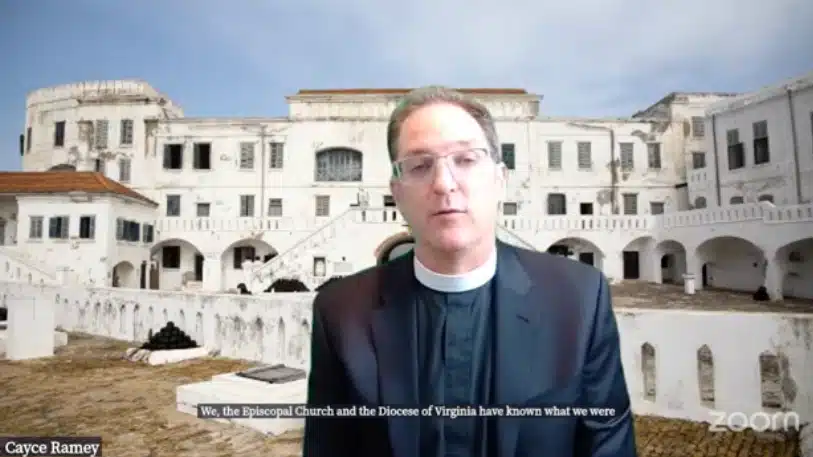We’ve previously covered the ongoing Title IV issues with Cayce Ramey in the Diocese of Virginia. A review of the information posted on the Diocese of Virginia website reveals that, despite a Court of Appeals decision overturning the Title IV hearing panel’s decision to defrock Ramey, the Diocese is moving forward with two separate Title IV cases.
The post covers the history of these cases and our reflections on the matter.
History
Confused by the procedural history of this case? If so, you’re not alone.
The current situation arises from two factors:
- The Court of Appeals held that, when Ramey allegedly refused to cooperate with the previous Title IV investigation, his failure to cooperate, itself a Title IV violation, should have been referred to the intake officer as a new complaint. That, versus the approach the hearing panel took, which was to impose sanctions.
- Allegations that Ramey violated a previous pastoral direction suspending him from all aspects of being an Episcopal priest. These allegations resulted in a second Title IV complaint.
Today, the Diocese is amending its original complaint per the Court of Review’s decision.
In doing so, the Diocese is making clear that it intends to combine the second complaint with the original, resulting in an omnibus, consolidated Title IV complaint.
We believe several aspects of the Court of Appeals decision are erroneous. Specifically:
- A hearing panel holds wide-ranging discretion per the canons when it comes to managing a case. Thus, we think it was a mistake for the Court to choose one response over another regarding the respondent’s alleged misconduct.
- Dicta in the decision talks about the importance of seeking healing and reconciliation. While we believe judicatories far too often lose sight of these objectives, this is not one of those cases. Indeed, a review of the record shows the Diocese of Virginia was, if anything, far too patient with Ramey and his grandstanding.
At the same time, we’re on the record as being uncomfortable with the notion that priests must say Mass in order to be in good standing. Indeed, we know many priests who never say Mass—either because they are ordained but work in other fields, or because they’re retired.
We also question the wisdom of spending so much time and money pursuing Ramey. If he can find a job that doesn’t require saying Mass, more power to him. If he can’t find a job of this sort, too bad, so sad, catch you on the rebound.
Right goal, questionable reasons
Relatedly, we think the Diocese is right to want to get rid of Ramey. Specific reasons we believe this:
- Ramey falsely claims the Diocese seeks to discipline him for heresy. That’s not true, and there’s zero evidence to support this fabrication. And yes, we have issues with any priest who lies like this.
- Ramey is a feckless priest, indifferent to the pastoral needs of his parishioners, as evinced by multiple complaints from his former parishioners at Sharon Chapel.
- Ironically, Ramey is damned clueless when it comes to race, with his “pilgrimages” to see Ghanaian slave trade sites including “celebratory dinners.” We were not aware that there is anything to celebrate when it comes to death, suffering, torture, and slavery.
- We see myriad hints in Ramey’s Title IV pleadings that he’s a narcissist. Whether it’s his repeat references to serving as a Marine, his so-called “battlefield promotion,” or his other instances of self-promotion, we’re not impressed. What would impress us would be some integrity, which is the one thing we don’t see in any of his statements.
At the same time, we question the whole notion of going after Ramey because he didn’t respect Bishop Susan Goff’s suggestions that he could not be a priest if he didn’t celebrate Mass.
Not only do we see no requirement in the canons that priests say Mass, but Goff’s comments were not in the form of a written pastoral direction.
Simply put, all Goff had to do was send a letter saying, “Thou shalt celebrate Mass.” Then, when he ignored her or said no, there would have been a clear-cut path forward — even though we suspect the Diocese would still face challenges over the notion that priests must say Mass.
Looking forward
In recent pleadings, the Diocese correctly notes that the facts of Ramey’s failure to cooperate in the original Title IV case are not in dispute. As a result, the case likely will move forward quickly.
At the same time, we hope that the Diocese won’t spend a lot of time trying to negotiate with Ramey. Already, the latter has proved to be tiresome, unrepentant, and dishonest. It’s time to cut him loose and be done with him.
Finally, we note Ramey has made no effort to retract his fabrications about how he’s being tried for heresy. That in itself tells us all we need to know about him, both as a person and a priest.


Leave a Reply